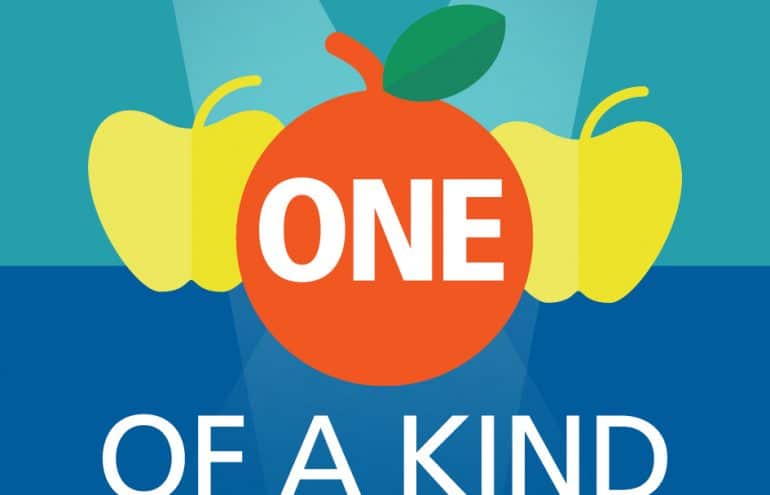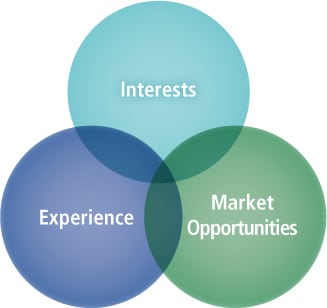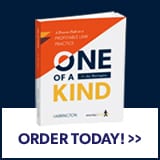There are countless ways lawyers can and do compete with one another for work. We have price — what work costs; process — how work is performed; personality — the lawyer’s and her firm’s; place — one’s geographic location; principles — “honesty,” “integrity,” “work ethic.” Those and countless others that don’t start with “p” are all characteristics that lawyers emphasize in an effort to differentiate themselves.
But these are not the fields on which you want to play. Expertise, narrowly defined, is what good clients crave and are willing to pay a premium for. Unlevel the playing field. Become an expert.
Why Get Narrow?
Visualize a continuum. On one end is the general practitioner — the “Jack of All Trades” — and on the other is the specialist — the “Master Craftsman.” The Jack of All Trades is busy, bouncing from project to project, learning a little about a lot. Clients think of the Jack of All Trades when price is a primary consideration. The Master Craftsman is also busy, but focused. He knows a lot about a little and is able to charge a price premium.
Most lawyers fall somewhere in the middle. They don’t try to be all things to all clients, but they like to keep their options open. Just think of how many practices and industries most lawyers list on their bio pages.
This tendency is largely driven by the fear of missing out on opportunities due to the misguided notion that the more options you provide to the marketplace, the more opportunities will present themselves to you. It’s also driven by the desire for variety, to do something different each day. The “shiny new toy” factor.
But there are consequences from fear, and a downside to variety. The less focused you are, the more commoditized you become. The more commoditized you become, the more alternatives there are to engaging your practice. The more alternatives there are, the less pricing power you have. As we all learned in Econ 101, price elasticity is driven by the availability of substitutes in a market. The more alternatives, the lower the price, and vice versa. By commoditizing yourself, you can insulate yourself from fears of missed opportunities, and indulge desires for variety, but it comes at a price. While there is comfort in being a generalist, it is false comfort. When you have a niche specialization, you may lose opportunities that don’t fit within it, but when you’re a generalist, you’ll certainly lose the powerful benefits that redound to legal experts.
The market for legal services is simply too competitive to have “some” expertise or “general” industry knowledge.
To become an expert you must go all-in.
Carving a Path to Expertise (Be Like Mike, or Like Meeks?)
LeBron James is an expert. So was Michael Jordan. They are two of the most prolific scorers in NBA history. They’re also considered two of the best defensive players to ever play the game. They’ve won championships, MVP trophies and huge endorsement deals, earning millions in the process. So should you try to become the Jordan or James of the legal game? Maybe, but it’s probably going to require setting all else — family, friends, outside interests — aside to pursue the pinnacle. A better role model might be Jodie Meeks.
Never heard of the guy? Well, Meeks just signed a three-year, $19 million contract with the Detroit Pistons. Unlike Jordan or James, he’s not a great all-around player, and was primarily a role player who came off the bench for his previous team, the Los Angeles Lakers. But Meeks excels at a skill that NBA teams crave — he’s one of the league’s best three-point shooters. And he’s ridden his ability to perform a narrow, but critical, task to a huge contract and what will likely be a long, lucrative career.
The point is that to reap the benefits of being an expert, you don’t need to be the world’s foremost litigator or M&A strategist. Those are big ponds with a lot of fish to swim in. Remember, “expert” is a relative term. A better approach is to think narrower. The law is vast and complex, so drill deep, not wide.
For most, potential areas of expertise to pursue can be identified at the intersection of interests, experience and market opportunities. If you can determine what you like to do, what you’re good at and where market opportunities exist and then find some commonality among them, you’ll be in good shape when it comes to carving out a niche.
Take, for example, a former colleague of mine. Fairly early in his career he established himself as a skilled corporate bankruptcy lawyer (what he’s good at — but a broad, “big pond” area of the law). While his knowledge and experience was in U.S. bankruptcy law, he always had an interest in aspects of international law (what interests him). A career in U.S. bankruptcy law does not necessarily lend itself to opportunities and exposure to international law issues, but that didn’t stop him. He identified opportunities to develop expertise in the narrow, but important, area of how the U.S. Bankruptcy Code and U.K. pension law intersect and impact each other. He honed his expertise in this area before the 2008 financial crisis and restructuring wave, and when the wave hit (the market opportunity) he was well positioned for a number of large, important engagements in U.S. bankruptcy cases that involved these international issues.
How to Sustain It
Being an expert is rewarding. Experts make more money. The work experts do is often more interesting, too. Work that the generalist may find demanding in a particular area of the law, requiring review of case law, statutes and court rules, is routine for the expert. What requires thought and research invites equivocation and uncertainty, while that which is routine is trained reflex, done with confidence and clarity. As a result, the expert’s mind is unshackled to think more deeply, examine problems differently and find solutions that generalists often cannot. This makes for a more interesting, enjoyable career.
Of course, these rewards are not free. Once an expert, not always an expert. Sustaining a market-leading position requires hard work, continuing education, forward thinking and creativity. Here are a few tips:
- Learn and do. True expertise comes from acquiring both knowledge and experience. You need to find time for both book learning and real-world experience.
- Be a thought leader. Content marketing — real thought leadership expressed in the marketplace of ideas — is an essential element of establishing and sustaining expertise. Not only will you promote your credentials, but the act of writing will force you to become more informed about your area of expertise.
- Be disciplined. The road to expertise (one that never really ends) is filled with distractions. Start small, learn your craft, and don’t get derailed by new “opportunities” that can slow your progression.
- Get a mentor. Just as Michael Jordan had a coach, experts rely on others that help them excel. Professional colleagues, mentors, business coaches — whoever you trust and respect — can often provide helpful feedback and perspective.
- Be confident and take risks. No one else will think you are an expert if you don’t think of yourself as one. Fear of failure is one of the biggest challenges you’ll face. You have to be willing to take chances — “get in the game” — to learn and grow.
The world does not need more general practitioners. What is needed, and what good clients are willing to pay a premium for, is deep knowledge and expertise in narrow practices and industries. While being a generalist may make you relevant to all, being a specialist makes you indispensable to some. Be indispensable.
Jay Harrington is co-founder of Harrington Communications, where he leads the agency’s Brand Strategy, Content Creation and Client Service teams. He also writes weekly dispatches on the agency’s blog, Simply Stated. Previously, Jay was a commercial litigator and corporate bankruptcy attorney at Skadden, Arps, Slate, Meagher & Flom and Foley & Lardner. He has an undergraduate degree in journalism and earned his law degree from the University of Michigan Law School.
ONE OF A KIND:
A Proven Path to a Profitable Law Practice
Practical advice for building a more profitable practice. Almost every lawyer wants to command higher rates and attract more clients. But many are stuck perusing ineffective strategies. Others don’t even know where to start. In his new book, lawyer-turned-legal marketer Jay Harrington lays out a path for lawyers to build a profitable practice.





















